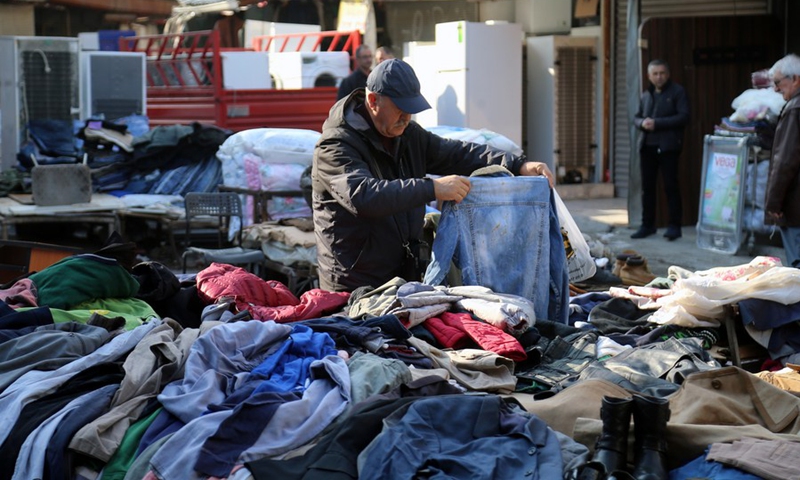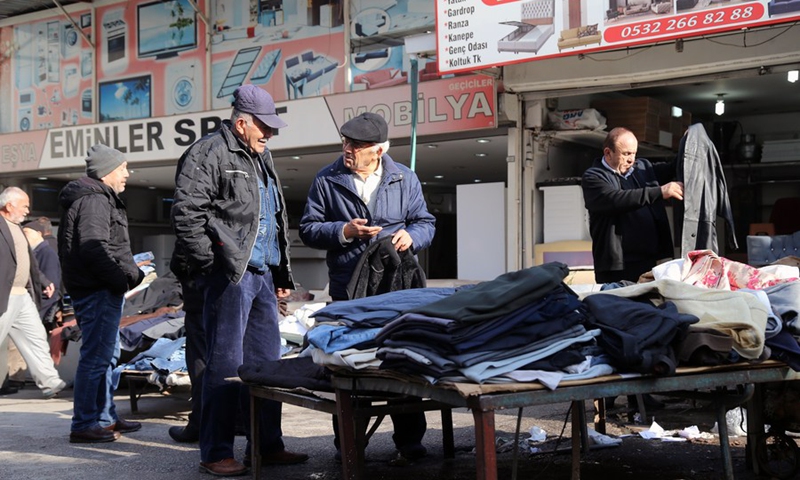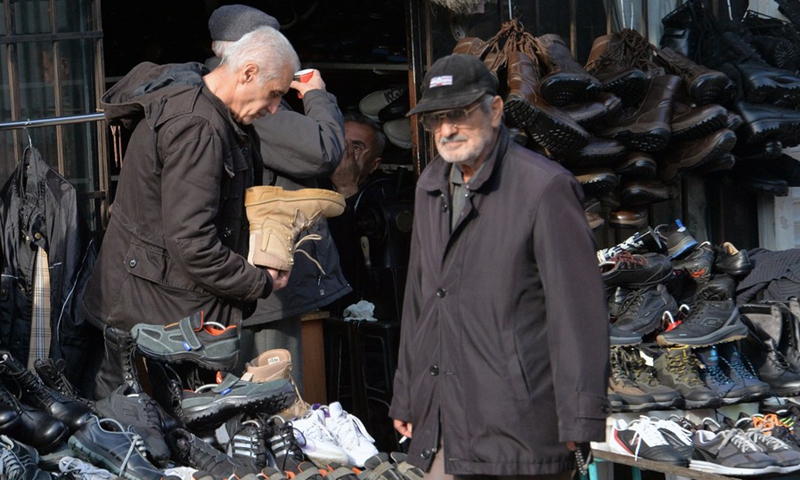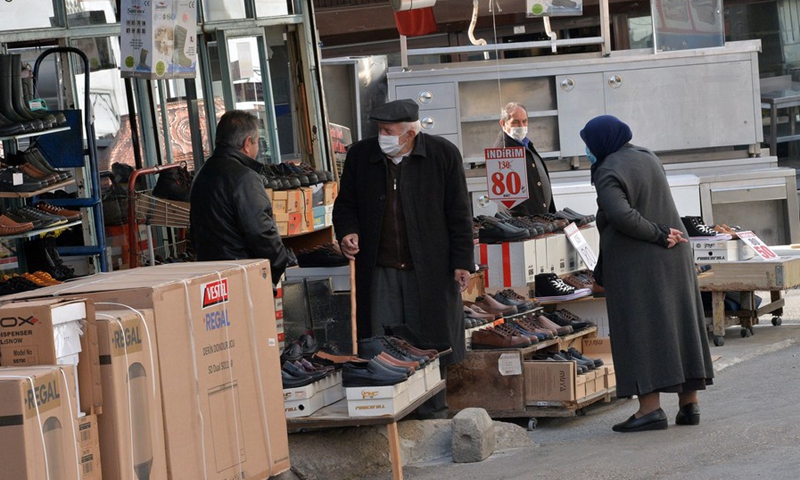
A man shops at a second-hand goods market in Ankara, Türkiye, Dec. 6, 2022.(Photo: Xinhua)

People shop at a second-hand goods market in Ankara, Türkiye, Dec. 6, 2022.(Photo: Xinhua)

People shop at a second-hand goods market in Ankara, Türkiye, Dec. 6, 2022.(Photo: Xinhua)

People shop at a second-hand goods market in Ankara, Türkiye, Dec. 6, 2022.(Photo: Xinhua)
Buying and selling second-hand goods has become popular in Türkiye as consumers are looking for affordable used products amid the country's economic woes and soaring inflation.
At the decades-old flea market at Itfaiye Square in the Ulus district of Türkiye's capital Ankara, a multitude of shops now offer bargains such as used clothes, home appliances and furniture for low-income citizens roaming for the most essential products they need.
"We are looking for furniture for our flat. The price of new furniture is very high so we came here to buy some. It can help us save some money which will go to food," said Ahmet, a young mechanic who declined to give his surname.
The Turkish man told Xinhua that durable goods such as furniture and white goods have become very expensive for him and his wife who both have a fixed income.
The price of furniture and household equipment has risen by 92.8 percent year on year, according to the monthly inflation data published by the Turkish Statistical Institute on Monday.
In fact, the astronomical rise of prices in the textile and electronic goods industries has also affected Türkiye's second-hand market, Mukerrem Korkmaz, the local head of the second-hand goods sellers chamber, told Xinhua.
"The price of washing machines and refrigerators have increased drastically, which caused a ripple effect on the second-hand markets," he said, adding the prices in the second-hand market also saw a steep rise.
"Because of high prices, we are also witnessing a slump in our business, and the interest is low," Nihat Ercan, a shop owner in Itfaiye Square, told Xinhua.
Since the currency crisis that erupted in mid-2018, Türkiye has been experiencing serious economic problems such as high inflation and a declining purchasing power for households.
For the first time since May 2021, Turkey's inflation saw a slowdown in November, decreasing to 84.3 percent from 85.5 percent in October, the Turkish Statistical Institute revealed on Monday.
Economists say Türkiye's inflation rate will continue to slow but remain staggering for many months to come, and price hikes for essential goods are going to continue but at a slower pace.
The Turkish government's current economic program prioritizes low-interest rates to boost production and exports to achieve a current account surplus.
